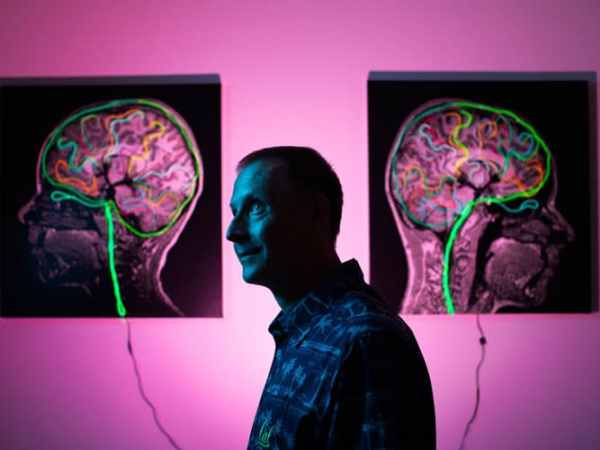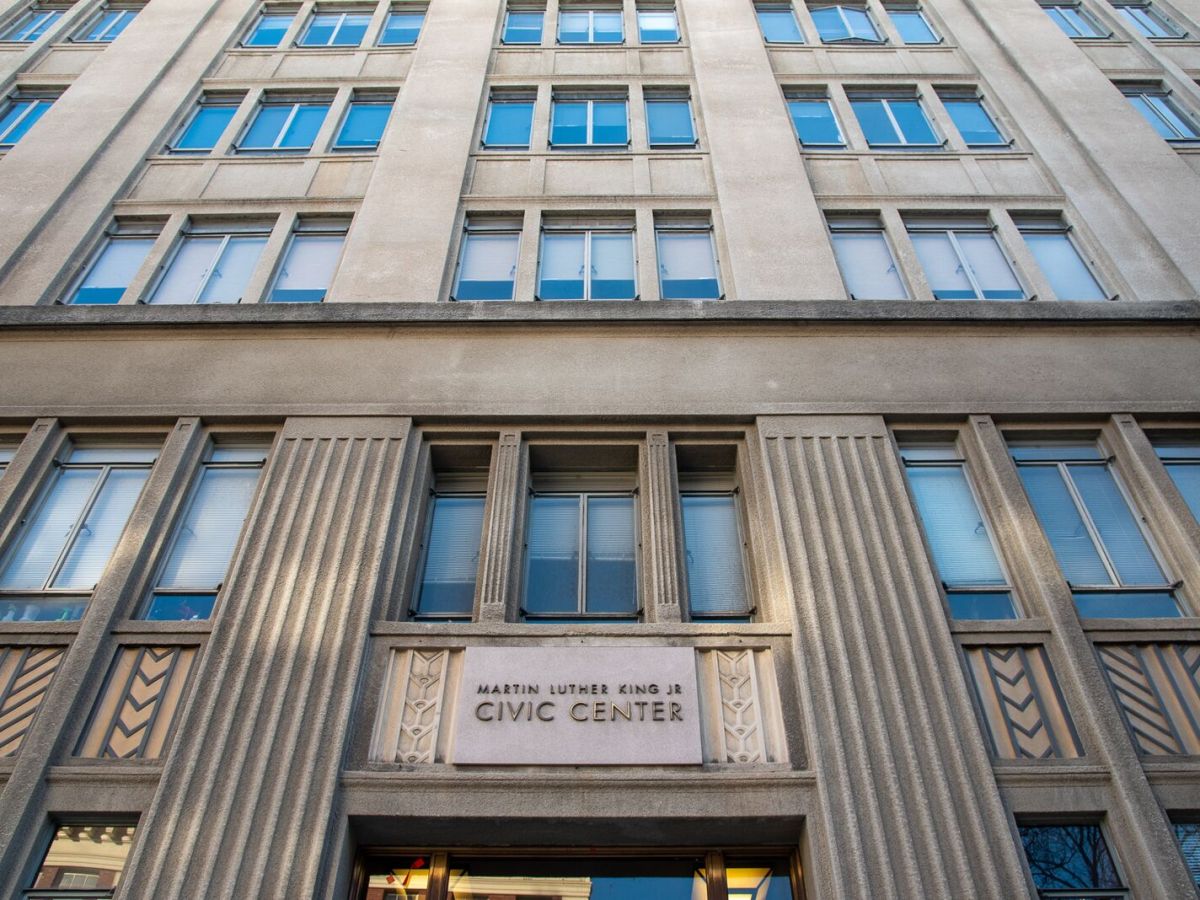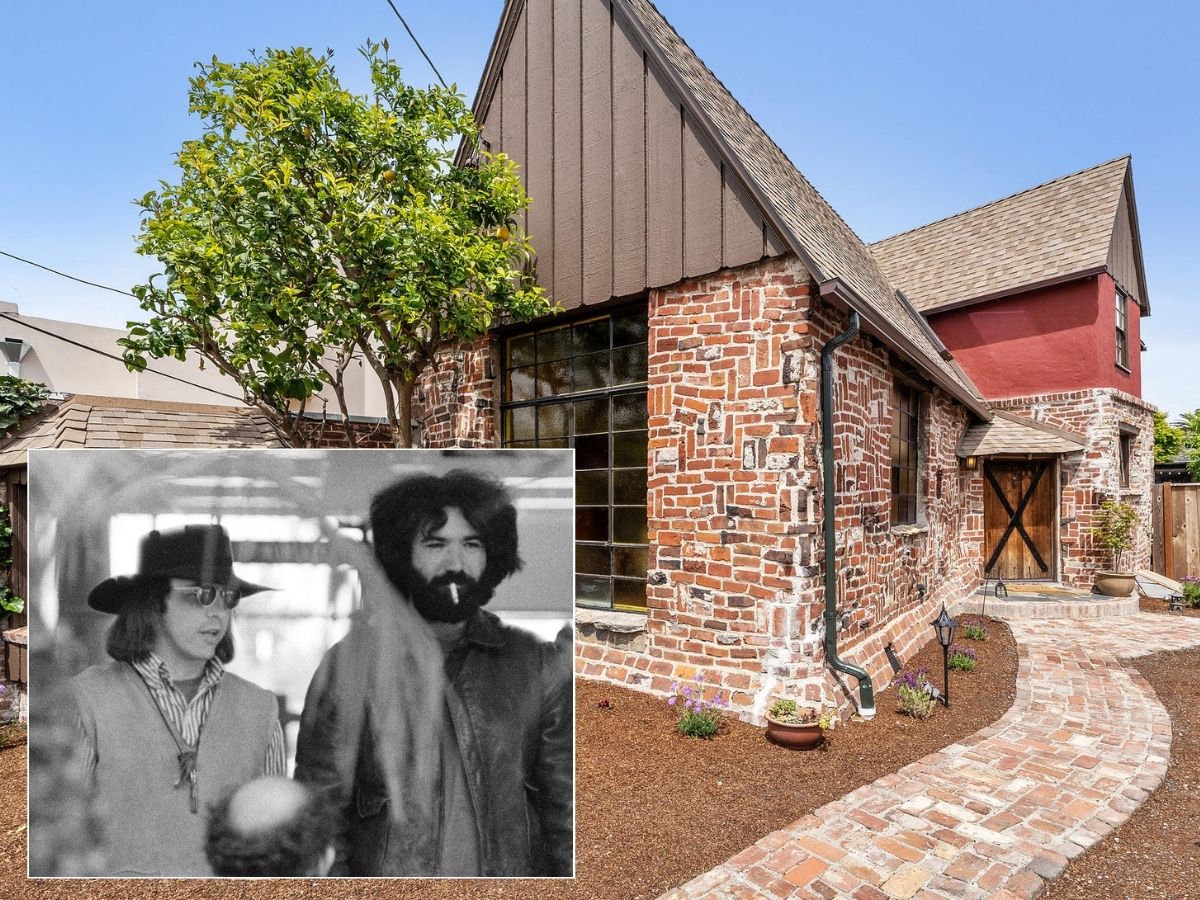
In Berkeley’s Portal Community Center near Ashby BART station, Pastor Bob Otis sits at a table, surrounded by psychedelic plants. The room smells of incense, and light, filtered through stained glass windows, creates colorful patterns on the sepia-colored walls. The pastor has a calm and open demeanor and is dressed casually in colorful garments, a T-shirt and jeans — a contrast to the austere attire of many church leaders.
Today the center is hosting Sacred Garden Community Church’s Sunday Satsang, a spiritual service attended by about 60 members of the church every week, both virtually and in person. The hours are spent reflecting on divine presence, higher consciousness, universal source — or what other religions might call God.
The big difference is that Sacred Garden is a religious institution dedicated to helping its members experience what the church calls “divine presence in this lifetime” through the use of psychedelics, otherwise known as entheogens. These are substances, in this case plants, that induce alterations in perception, mood, and cognition. Common types include psychedelic mushrooms, peyote, and ayahuasca.
The Portal center where the members meet is dedicated to serving entheogen-focused groups. Entheogens are not consumed at Sunday Satsangs, however, but rather at plant ceremonies that are held twice a month for initiated church members in locations like redwood groves. The pastor was not very forthcoming with details about the ceremony, but said psychedelics are a key part of their practice as they allow members to try to connect with a divine presence by accessing non-traditional states of consciousness. The Satsang, on the other hand, is dedicated to community integration — members process their psychedelic experiences and learn to integrate their lessons into everyday life.
“If we want to be a healthy church, we really need to offer the constellation of resources that surround the ceremony that allow you to have a safe and healthy practice,” said Pastor Bob.
Anyone interested in the church — what the Pastor calls seekers — can attend public community events. In order to become a seeker, you have to register through their website, which involves signing up for a monthly membership at a $23 fee — though, there are scholarships available if the seeker is unable to cover the funds. Once you are registered as a seeker, you are asked to attend at least eight community events over the course of three months in order to become a confirmed practitioner. After that, you are allowed to participate in the bimonthly sacred plant ceremonies.
The ceremonies currently involve psychedelic substances like changa, a blend of DMT and a type of anti-depressant ; MDMA, a stimulant more commonly known as Ecstasy or Molly; huachuma, a cactus mostly found in the Andes; and psilocybin mushrooms. And the church has an active liturgy committee that assesses any new substances, or what the church calls sacraments, that practitioners might want to add to the ceremony offerings.
Pastor Bob does warn that psychedelics aren’t for everyone who comes to the church.
“If someone is struggling with a recent hard trauma,” he said, “those folks, I don’t recommend engaging with entheogen experience, at least until after engaging with some clinical work to see where you are.”
Funding from soap empire’s David Bronner
Before the nonprofit church was officially created in 2020, Pastor Bob, who uses both xe/xim and he/him pronouns, was facilitating plant journeys or ceremonies on his own for a couple of decades. As word of mouth spread, the groups became larger, and he decided it made sense to open a church to accommodate a growing interest in membership. Today, many of the church’s meetings happen in the Portal space. The space is also home to many other kinds of events, not all religious in nature.
Created in 2020, the Portal was funded by David Bronner of the soap empire. Bronner said that his family has invested around $25 million into the psychedelic space over the last 20 years. Bronner had heard about the plant ceremonies that Pastor Bob was facilitating, and the church that had formed out of them. Bronner noted he had the desire to create a space where different psychedelic groups could come together and share their practices, to create a stronger community.
Bronner offered Pastor Bob a six-figure, three-year funding commitment to launch the Portal. Before, there wasn’t a place like this for various members of the entheogenic community to meet. Demand has grown steadily and so far this year the space has held over 250 events for groups that hold facilitation workshops, practitioner trainings, recovery meetings, and more.
Pastor Bob had his first psychedelic-assisted spiritual experience as a teenager in Tennessee, he told Berkeleyside. He first used psychedelics at the age of 17. Accompanied by friends, he took a high dose of LSD which led him to meditate on top of a mountain. He said he watched what once felt separate from him — the trees, the grass, the sky — all turn into this solid light and become one.
“I thought I was going to have to die for this to happen,” said Pastor Bob. “I was like, Jesus, are you going to tell me anything?”
Given his religious upbringing in a Methodist family, the words that came to Pastor Bob to describe the experience were overwhelmingly spiritual. Hungry to learn more, he pursued psychology and religious studies in college to better understand how a substance could change the nature of both his consciousness and his experience of reality.
Psychedelics, the church, and the law
The Sacred Garden Community is far from the only church that uses psychedelic sacraments in its practices. There are other centers throughout the country that hold ceremonies with psychedelics, including the popular Zide Door church in East Oakland.
The history of their use to reach spiritual enlightenment goes back centuries, but the 1960s are known as the ‘heyday’ of psychedelic experimentation in the U.S. for spiritual, recreational, and therapeutic use.
Much of the activity originated or happened in Northern California around this time, where many leaders in the psychedelic movement, like Timothy Leary and Ken Kesey, lived and worked. Grateful Dead sound engineer Stanley Owsley, who dropped out of Cal in the 1960s, worked as a high-quality LSD producer on Virginia Street, not too far from the Berkeley campus.
This was before 1966, when California became one of the first two states to outlaw LSD. In 1970, then-President Richard Nixon signed the Controlled Substances Act, which made most psychedelics illegal in the U.S. Since then, legislation has been created to help churches use psychedelics in their practices without interference from the government.
In 1993, the federal government signed the Religious Freedom Restoration Act as a sort of ‘safety net’ added to the First Amendment. The RFRA ensures that religious freedom is protected for churches that are actively practicing. The criteria listed by the Drug Enforcement Administration to allow exemptions for churches is short, but vague in its language, stating that “sincere religious exercise” must be demonstrated. While this creates a loophole for churches, the RFRA doesn’t necessarily make these drugs legal under federal and state jurisdiction.
In terms of policy, there has been a recent wave of legislation to move decriminalization efforts forward in California and specifically the Bay Area.
Last year, SB519 was passed in the Senate to legalize and remove penalties for the possession and use of psychedelics in the Golden State, including magic mushrooms, DMT, ibogaine, LSD and MDMA for people 21 and older. Sponsored by Sen. Scott Wiener and approved by the Assembly Public Health and Public Safety Committees, the bill’s decriminalization aspect was eliminated, and the plan was reduced to a single study.
In 2019, a proposal to decriminalize entheogens was presented to the Berkeley City Council by then Councilmembers Rigel Robinson and Cheryl Davina. It was originally written by Decriminalize Nature Oakland, a nonprofit that works to decriminalize entheogens, but was not further pursued by Berkeley’s Community Health Commission. The commission did create an Entheogenic Subcommittee in order to study the possible benefits of decriminalizing these substances. This year, a new resolution was written by subcommittee members Joseph Adams and Karma Smart, and could effectively decriminalize all psychedelics in Berkeley, except peyote but including LSD. It was presented to the CHC at the end of October, but has yet to be voted on.
Berkeley is still far behind its Oakland neighbor, which passed its decriminalization bill back in 2019. Supported by Decriminalize Nature, the bill decriminalized the use of mushrooms, mescaline, and ibogaine in the city. It also made the prosecution of people involved in psychedelics one of the lowest priorities for law enforcement, and city funds used for criminal penalties will be limited.
Sacred Garden was incorporated in Oakland, and Pastor Bob said the church has been careful to never engage in entheogenic practices in Berkeley.
Despite protections of the RFRA and Oakland’s decriminalization policy, there are still consistent examples of how religious freedom and local legislation are tested by authorities when psychedelics are involved. Zide Door, in East Oakland, was originated by Dave Hodges in 2019 and has had its own run-ins with the police. The church was subjected to a police raid in August 2020, where Oakland authorities seized about $200,000 in cannabis and mushrooms and took $5,000 in cash.
Pastor Bob hopes to prevent run-ins with the law that Zide Door experienced with the Oakland Police Department. He said he is confident in the sincerity of Sacred Garden’s religious practice.
“We have religious freedom in the United States, and we have a sincere church. It’s the state’s obligation to prove otherwise, and I pray that they don’t care to try to do that,” he said.
In continuing his spiritual work for the Sacred Garden community, and creating a space for members to experience the benefits of psychedelics, Pastor Bob is also working to ensure that entheogens are not further criminalized in the Bay Area.
Portal a meeting space for the entheogenic community
On a recent Sunday at the Satsang, several chairs were lined up inside the Portal Community Center. On a small table in the corner sat a donation jar, rolling papers, and various trinkets. Some attendees sat in the back of the room, while others made their way to the front, eager-eyed as they listened to Pastor Bob speak.
One participant, Clifton Ross, gave a plant talk that day. That’s a part of the weekly service. Each week a different psychedelic plant is highlighted and community members are asked to share their experiences. This Satsang, Ross recited an ode that spoke to the power of cannabis. He called it a sacrament, a way to connect to something deeper within yourself.
Ross, who became a member of Sacred Garden in July, said that exploring psychedelics has been a helpful tool in healing his childhood trauma.
In addition to being a member of the church, Ross also helps organize the Psychedelics in Recovery meetings that are often held at the Portal. They provide a space for anyone recovering from substance addiction and abuse to explore integrating psychedelics in their recovery. Psychedelics have been studied as potentially useful tools in addiction management, and these meetings at the Portal allow individuals to share that knowledge.
“There’s so much information that isn’t brought to consciousness, that we never have a chance to deal with,” Ross said. “Psychedelics are useful for bringing things up.”
Correction: A previous version of this story misstated the amount of money the Bronner family has given toward psychedelic wellness in recent decades. The family has given about $25 million — around a quarter of its overall philanthropy. The story has also been changed to clarify the types of psychedelics used in Sacred Garden ceremonies.



